Early life and education
Osborne was born in Maryland on January 12, 1903. He graduated from the U.S. Military Academy at West Point, Class of 1926. [1]

Ralph Osborne was a United States Army major general who served as commandant of the American sector of Berlin until his retirement in 1961.
Osborne was born in Maryland on January 12, 1903. He graduated from the U.S. Military Academy at West Point, Class of 1926. [1]

Osborne was assigned to the command of the Berlin Brigade in 1958. [2] On December 13, 1959, he took command of the post relieving Barksdale Hamlett putting him in a precarious, complex position commanding a garrison of 5,000 men, many with wives and children. [3]
In 1962, he was awarded the Army Distinguished Service Medal as a major general for "exceptionally meritorious and distinguished service" as U.S. Commander Berlin from 1959 to 1961.
Osborne had a decorated career of over 15 years prior to his assignment to including service in the Pentagon, staff service in World War II, on the front lines in the Korean War, and during the Korean armistice talks. [4]
In 1953, he was responsible for informing Hiroshi Miyamura that he had been awarded the Congressional Medal of Honor for his courageous actions during the Korean War upon his release from captivity in a North Korean camp. [5] The award marks is the only Medal of Honor to have been classified as top secret. [6] To Miyamura and reporters, Osborne explained that "if the Reds knew what he had done to a good number of their soldiers just before he was taken prisoner, they might have taken revenge on this young man. He might not have come back." [7]
In 1934, while a first lieutenant, he married the actress Kathleen Collins. [2] As of 1963, Osborne had retired with his wife Kathleen in San Antonio, Texas. [8]
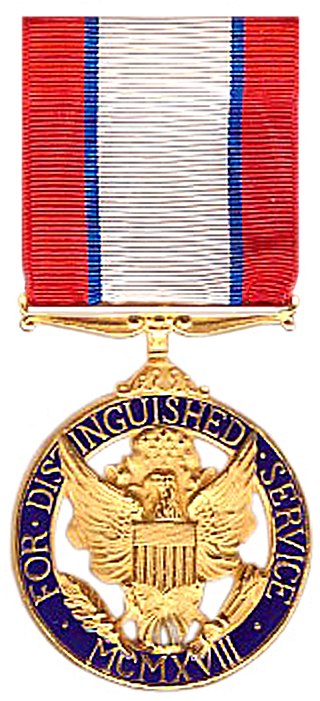
The Distinguished Service Medal (DSM) is a military decoration of the United States Army that is presented to soldiers who have distinguished themselves by exceptionally meritorious service to the government in a duty of great responsibility. The performance must be such as to merit recognition for service that is clearly exceptional. The exceptional performance of normal duty will not alone justify an award of this decoration.

The Distinguished Flying Cross (DFC) is a military decoration of the United States Armed Forces. The medal was established on July 2, 1926, and is currently awarded to any persons who, after April 6, 1917, distinguish themselves by single acts of heroism or extraordinary achievement while participating in aerial flight. Both heroism and extraordinary achievement are entirely distinctive, involving operations that are not routine. The medal may be awarded to friendly foreign military members in ranks equivalent to the U.S. paygrade of O-6 and below in combat in support operations.

The Distinguished Service Cross (DSC) is the United States Army's second highest military decoration for soldiers who display extraordinary heroism in combat with an armed enemy force. Actions that merit the Distinguished Service Cross must be of such a high degree that they are above those required for all other U.S. combat decorations, but which do not meet the criteria for the Medal of Honor. The Army Distinguished Service Cross is equivalent to the Naval Services' Navy Cross, the Air and Space Forces' Air Force Cross, and the Coast Guard Cross. Prior to the creation of the Air Force Cross in 1960, airmen were awarded the Distinguished Service Cross.

Sergeant First Class Modesto Cartagena de Jesús was a member of the United States Army who served in the 65th Infantry Regiment, a military regiment consisting of Puerto Rican enlisted soldiers and officers from the continental United States also known as "The Borinqueneers," during World War II and the Korean War, becoming the most decorated Hispanic soldier in that war. He was the most decorated Puerto Rican soldier in history.
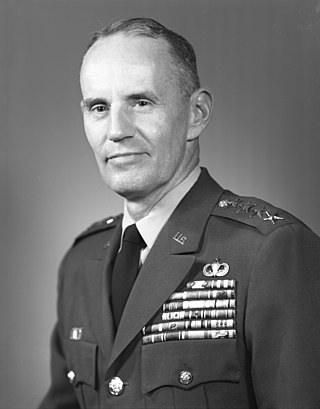
Bruce Palmer Jr. was a general in the United States Army. He commanded the XVIII Airborne Corps during Operation Power Pack, the II Field Force, Vietnam during the Vietnam War, and was acting Chief of Staff of the United States Army from July to October 1972.
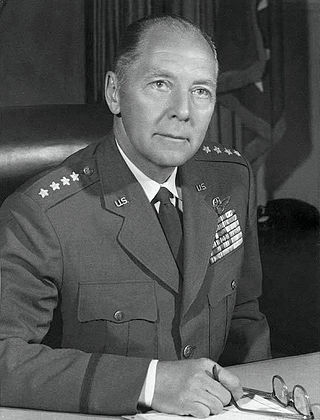
General Jacob Edward Smart was a general officer who served in United States Army during World War II and in the Air Force during the Cold War era.
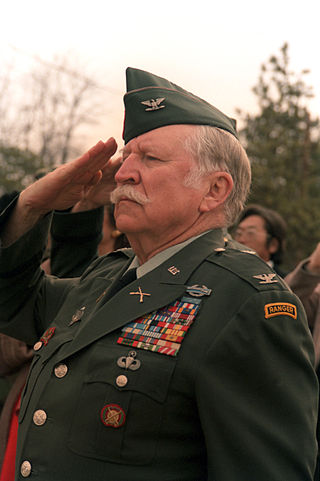
Lewis Lee Millett Sr. was a United States Army officer who received the Medal of Honor during the Korean War for leading the last major American bayonet charge.

Hiroshi "Hershey" Miyamura was a United States Army soldier and a recipient of the Medal of Honor, the United States military's highest award for valor, for his actions during the Korean War. He was one of the last two surviving Medal of Honor recipients of the Korean War, along with Ralph Puckett Jr. While he was held as a prisoner of war, the award was classified as top secret.

Samuel Streit Coursen was a 1949 graduate of the United States Military Academy and company commander in the United States Army during the Korean War. He received the Medal of Honor posthumously for his actions on October 12, 1950.

Ralph Puckett Jr. was a United States Army officer. He led the Eighth Army Ranger Company during the Korean War and was awarded the Distinguished Service Cross for his actions on November 25, 1950, when his company of 51 Rangers was attacked by several hundred Chinese soldiers at the battle for Hill 205. He later served in the Vietnam War and retired from the army in 1971 as a colonel. After being appointed on July 19, 1996, he served as the Honorary Colonel of the 75th Ranger Regiment.

Richard Edward Cavazos was a United States Army 4-star general. He was a Korean War recipient of the Distinguished Service Cross as a first lieutenant and advanced in rank to become the United States Army's first Hispanic four-star general. During the Vietnam War, as a lieutenant colonel, Cavazos was awarded a second Distinguished Service Cross. In 1976, Cavazos became the first Mexican-American to reach the rank of brigadier general in the United States Army. Cavazos served for 33 years, with his final command as head of the United States Army Forces Command. On May 25, 2022, The Naming Commission recommended that Fort Hood be renamed to Fort Cavazos, in recognition of Gen. Cavazos' military service. Defense Secretary Lloyd Austin ordered the renaming on October 6, 2022. The re-designation as Fort Cavazos occurred on May 9, 2023.

Earle Everard "Pat" Partridge was a four-star general in the United States Air Force and a Command Pilot.
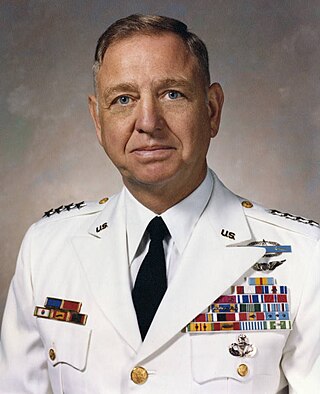
Sam Sims Walker was a United States Army general who served as the Commanding General of Allied Land Forces, South East Europe from 1977 to 1978.

Philip De Witt Ginder was a career soldier in the United States Army. A highly decorated combat veteran, he rose to the rank of major general during the Korean War, while commanding the 45th Infantry Division. He was a recipient of the Distinguished Service Cross, the United States' second-highest military award.
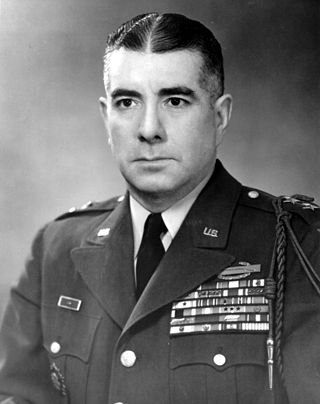
Lionel Charles McGarr was a lieutenant general in the United States Army. He was the last commander of Military Assistance Advisory Group – Vietnam.

The 65th Infantry Regiment, nicknamed "The Borinqueneers" during the Korean War for the original Arawak Indian name for Puerto Rico (Borinquen), is a Puerto Rican regiment of the United States Army. The regiment's motto is Honor et Fidelitas, Latin for Honor and Fidelity. The Army Appropriation Bill created by an act of Congress on 2 March 1899 authorized the creation of the first body of native troops in Puerto Rico. On 30 June 1901, the "Porto Rico Provisional Regiment of Infantry" was organized. On 1 July 1908, Congress incorporated the regiment into the Regular Army as the Puerto Rico Regiment of Infantry, United States Army. On 14 May 1917, the regiment was activated and additional men were assigned, with the unit being sent to serve at Panama. On 4 June 1920, the regiment was renamed 65th Infantry. During World War II, the regiment saw action throughout Europe, especially France and Germany, participating in Naples-Foggia, Rome-Arno and Rhin. Several Purple Hearts were awarded posthumously to members of the 65th Regiment.
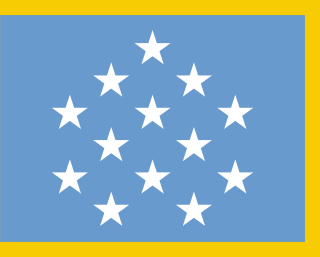
The Medal of Honor (MOH) is the United States Armed Forces' highest military decoration and is awarded to recognize American soldiers, sailors, marines, airmen, guardians, and coast guardsmen who have distinguished themselves by acts of valor. The medal is normally awarded by the President of the United States and is presented "in the name of the United States Congress." It is often, not strictly correctly, referred to as the Congressional Medal of Honor.

Master Sergeant Juan E. Negrón Martínez was a member of the United States Army who served in the 65th Infantry Regiment during the Korean War. He was awarded a Distinguished Service Cross for his actions during combat in the Chinese Spring Offensive at Kalma-Eri, North Korea, on April 28, 1951, which was posthumously upgraded to the Medal of Honor in 2014.

Medal of Honor is an anthology documentary series that is based on real life combat events and personal sacrifice that ultimately lead to being awarded the Medal of Honor. The series highlights Medal of Honor awards that are given both posthumously in addition to awards given to recipients who are still alive today. Each episode recreates one person's experience pertaining to the story behind their Medal of Honor award.